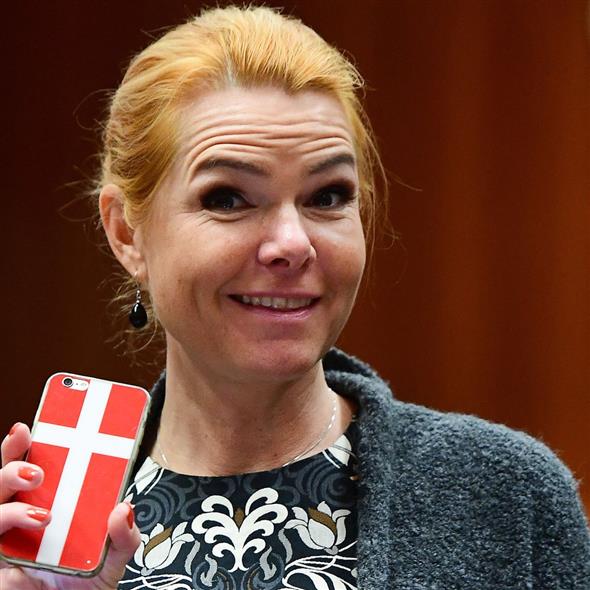Danish ex-minister given jail sentence for separating couples seeking asylum
Inger Støjberg receives two-month sentence for separating several couples where woman was under 18

Denmark’s former immigration minister has been sentenced to two months in prison after a special court found her guilty of illegally separating several couples of asylum seekers where the woman was under 18.
Inger Støjberg was sentenced on Monday to 60 days in jail over accusations that she violated the European convention on human rights by ordering the separation of couples, some of whom had children.
“Inger Støjberg is found guilty of a deliberate violation of the Ministerial Responsibility Act,” Denmark’s court of impeachment of the realm said in a statement.
The former minister had pleaded not guilty in the exceptional trial that began in September.
While the sentence was not suspended, those in Denmark serving less than six months are eligible for electronic monitoring instead, meaning Støjberg is unlikely to spend any time in prison.
In 2016, 23 couples, most of whom had a small age difference, were separated without individual examinations of their case, following instructions from the minister. They were then placed in different centres while their cases were being examined. Her decision was found to be “unlawful” because the arrangement was made without exceptions and the immigration service did not consider individual cases.
Parliament must now decide whether to disqualify Støjberg from being a member of parliament.
Serving as the minister for immigration and integration from 2015 to 2019 in a centre-right government propped up by the rightwing populist anti-immigration Danish People’s party (DF), Støjberg helped tighten Denmark’s restrictive migration policy.
She boasted of having passed more than 110 amendments restricting the rights of foreigners. During her term in office, she also passed a bill allowing for the confiscating of refugees’ assets to finance their care in Denmark.
Her case was only the third time since 1910 that a politician had been referred to the 26-judge special court in Denmark, which is designed to try ministers for malpractice or negligence while in office.
The last case dates back to 1993 and “Tamilgate”, the illegal freezing of the family reunification of Tamil refugees in 1987 and 1988 by the former Conservative justice minister Erik Ninn-Hansen.
Ninn-Hansen ended up with a four-month suspended prison sentence.
Source: theguardian.com




